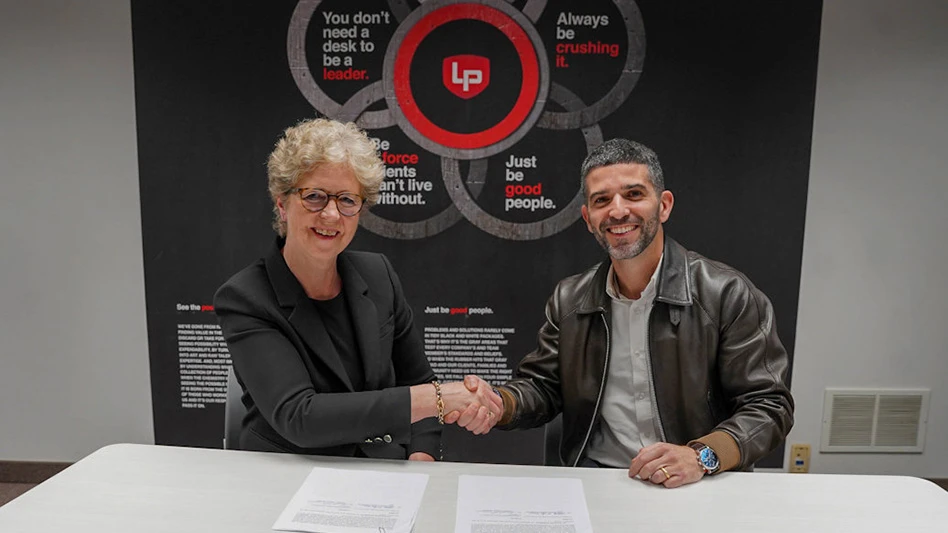
Photo courtesy of Norsk Hydro
Norway-based aluminum producer Norsk Hydro and Holland, Michigan-based recycling firm Padnos have formed a joint venture (JV) designed to “industrialize Hydro’s proprietary sorting technology, HySort, bringing this advanced aluminum sorting technology to the United States.”
The companies' 50/50 joint venture Alusort LLC has launched with a plan to install a Hysort sorting machine at Padnos’ existing facility in Grandville, Michigan. Production involving the Hysort is expected to start next year, and Hydro says its share of the capital investment for Hydro is estimated at around $4 million.
“Digging deeper into the scrap pile and returning more aluminum to the cycle not only contributes to reducing emissions and nature impact—it’s also good business,” Hydro President and CEO Hilde Merete Aasheim says.
"Alusort represents an exciting opportunity for both companies to strengthen our leading positions in recycling. With our state-of-the-art sorting technology, the joint venture can handle the most mixed and challenging scrap types that otherwise would have ended up in landfills. Instead, we bring it back to life as value-added, low-carbon products for the automotive, building and construction and other key aluminum end markets.”
“At Padnos, we look for the next generation of recycling in all materials we handle, from ferrous metals to plastics to aluminum,” says Jonathan Padnos, president and CEO of Padnos. “Collaboration and market demand play critical roles in innovation. Hydro is the perfect partner for us to take aluminum recycling to the next level with our Alusort joint venture.”
Hydro says the Alusort equipment in Michigan will sort up to 20,000 metric tons of aluminum scrap per year. Padnos personnel will run the daily operations, with Hydro personnel providing technical support as well as oversight of the activities.
The Michigan Alusort setup mainly will supply sorted aluminum scrap to Hydro’s scrap-consuming melt shops in Cassopolis, Michigan, and Henderson, Kentucky, and potentially other Hydro facilities in the United States and Canada, Hydro says, with other fractions to be sold to third parties.
Perceiving an ongoing demand for low-carbon aluminum, Hydro states, “Access to postconsumer scrap becomes increasingly important for aluminum recycling companies like Hydro in the United States.”
HySort uses laser-induced breakdown spectroscopy (LIBS) technology and was developed in Europe. It currently is used at Hydro’s recycling hub in Dormagen, Germany, and targets the recovery of specific aluminum alloys from obsolete vehicles and electronics, the Norwegian firm says.
Hydro expects to produce 120,000 metric tons of aluminum extrusion ingot per year at its newly opened plant in Cassopolis. In total, Hydro has 11 recycled-content melt shops or extrusion plants in the U.S. and one in Canada.
Hydro says the Cassopolis plant, however, is the first to serve as a large-scale producer of Hydro Circal. That branded aluminum is marked by Hydro as recycled-content and low-carbon metal ideal for companies seeking those qualities.
Hydro Circal contains at least 75 percent postconsumer aluminum scrap, certified by a third-party auditor, and has what the company calls a market-leading CO2 footprint of just 2.3 kilograms (kg) or less of CO2 equivalent per kg aluminum.
“With Alusort, we will introduce our next-generation recycling technology, pioneered in Europe, to capture additional value from upstream sorting activities in the United States,” Aasheim says. “We’ll get access to more scrap types and expand our portfolio of high-quality recycled automotive alloys to our most demanding customers. Alusort is a key contributor and enabler for large-scale production of Hydro Circal.”
Founded in 1905, Padnos describes itself as a fourth-generation, family-owned company that recycles ferrous and nonferrous metals, end-of-life vehicles, paper, plastics and electronics. Padnos operates from 26 locations with more than 1,000 employees.
Latest from Recycling Today
- BMW Group, Encory launch 'direct recycling’ of batteries
- Loom Carbon, RTI International partner to scale textile recycling technology
- Goodwill Industries of West Michigan, American Glass Mosaics partner to divert glass from landfill
- CARI forms federal advocacy partnership
- Monthly packaging papers shipments down in November
- STEEL Act aims to enhance trade enforcement to prevent dumping of steel in the US
- San Francisco schools introduce compostable lunch trays
- Aduro graduates from Shell GameChanger program





